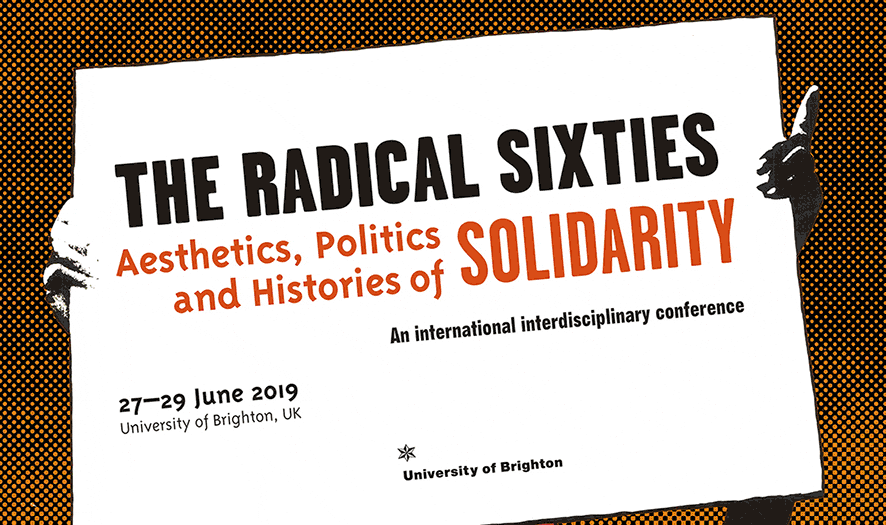28th – 29th June 2019
University of Brighton
Opening public roundtable on the evening of 27 June 2019
Speakers include:
Bernadette Devlin McAliskey, S.T.E.P.
Karma Nabulsi, University of Oxford.
Conference keynote speakers:
Vijay Prashad, Tricontinental Institute for Social Research.
Cynthia Young, Pennsylvania State University.
CONFERENCE PROGRAMME:
Radical-Sixties-Programme
An international interdisciplinary conference jointly organized by the University of Brighton’s Centre for Applied Philosophy, Politics and Ethics (CAPPE); Centre for Design History (CDH) and Centre for Memory, Narrative and Histories (CMNH).
“The Sixties” continue to engage scholars from many disciplines in debates over what exactly changed; and, indeed, whether the various protest movements were in fact radical at all in their political demands. Both nostalgically celebrated as a revolutionary heyday and lamented as a failed political project, the decade continues to haunt veterans and preoccupy scholars fifty years on.
However, these long-held evaluations remain parochially centred on European and North American experiences in a handful of cities in this tumultuous decade. Crucially, a Third Worldist perspective, despite its centrality for activists in the 1960s, is conspicuously marginalized in today’s scholarship. It has been argued—and demonstrated—that decolonisation struggles and anti-imperialist resistance spanning the three continents of the Global South, from Cuba to Algeria and all the way to Vietnam, both politically informed a new generation of contestation and offered a new radical horizon of Leftist internationalism. And yet “The Sixties” continues to be universalised on the basis of myopically “Western” speculations about what makes radical politics possible.
This conference thus seeks to decentre the established loci of “The Sixties”. It builds on recent efforts to expand and complicate the spatiality and temporality of the global sixties and calls for new analyses of this critical historical conjuncture from the standpoint of solidarity. For today we seem to know very little about how solidarity constituted a nodal theme for radical Leftist politics in the 1960s; its intellectual frameworks and transnational politics, associated aesthetics and cultures of circulation. How was solidarity conceived, imagined and radically enacted in the border-crossings, both spatial and intellectual, of revolutionaries in the “long” 1960s?
Organising Committee
Zeina Maasri (convener); Cathy Bergin; Francesca Burke; Andrea Garcia Gonzalez; Garikoitz Gomez Alfaro; and Megha Rajgurju
CDH http://arts.brighton.ac.uk/re/centre-for-design-history-research
CMNH http://arts.brighton.ac.uk/re/cmnh
With additional support from Radical Futures





Leave a Reply